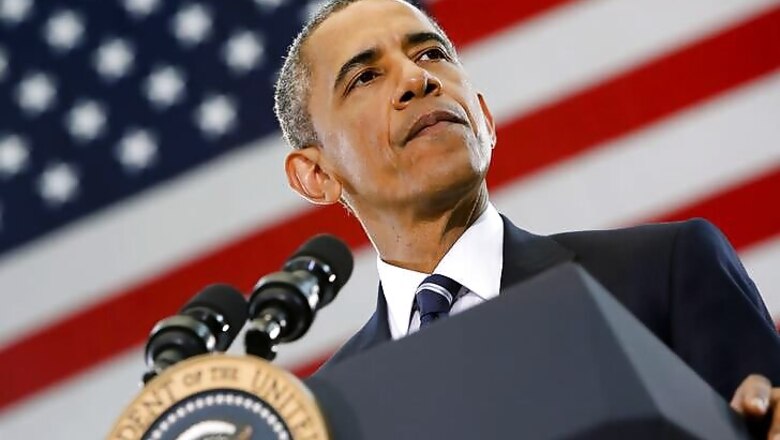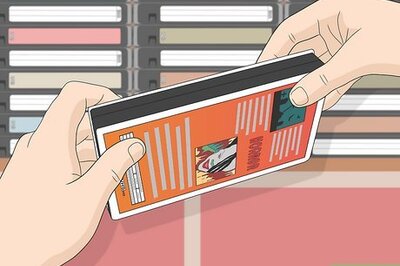
views
Washington: President Barack Obama has strongly defended the landmark Iranian nuclear deal, saying it blocks every pathway for Tehran to acquire nuclear weapons and was in the interest of both the United States and Israel.
Addressing the concerns of the Jewish community ahead of a crucial congressional vote next month, Obama in a webcast from the White House said, "this deal blocks every pathway that Iran might take in order to obtain a nuclear weapon."
Because of the stringency of the deal, a vast majority of experts on nuclear proliferation have endorsed this deal, he asserted. Obama on Friday said the world is more or less united, with some exceptions of Israel around the deal.
"People have said that, well, Iran will cheat. They are not trustworthy. I keep on emphasising we do not trust Iran. Iran is antagonistic to the US. It is anti-Semitic. It has denied the Holocaust. It has called for the destruction of Israel. It is an unsavoury regime," he said, adding that Iran is a regional power and not a superpower.
"But this deal doesn't rely on trust; it relies on verification and our capacity to catch them when they cheat and to respond vigorously if they do," Obama said.
Obama also acknowledged the support that most Jews have given him, saying, "I wouldn't be sitting here if it weren't for my friends and supporters in the Jewish community."
"Because of the unprecedented partnership we have with Israel, Israel has a much stronger military. Our Gulf partners spend eight times as much money as Iran does on their military," he said.
"So what we have done is, for the first 10 years, essentially restricted Iran's capacity not just to weaponize nuclear power but we severely constrain any nuclear programme -- peaceful or militarised.
"After 10 years, they're able to obtain some additional advanced centrifuges, but they continue to have to be carefully monitored in terms of the stockpiles that they produce," the US President said.
Obama's comments came at a sensitive time as next month Congress will take up resolutions to scuttle the nuclear deal. The potential congressional face-off has sparked an intense debate between supporters and opponents of the nuclear deal.
The Internet broadcast was hosted by the Conference of Presidents of Major American Jewish Organisations and The Jewish Federations of North America.
Israeli Prime Minister Benjamin Netanyahu, who has fiercely criticised the nuclear deal, took part in a similar webcast hosted by the same organisations earlier in August.
Israel strongly opposes the deal, which seeks to keep Iran from building a nuclear bomb in exchange for international sanctions relief. The deal was reached in July after extensive negotiations with the US, Britain, France, Germany and Russia.




















Comments
0 comment